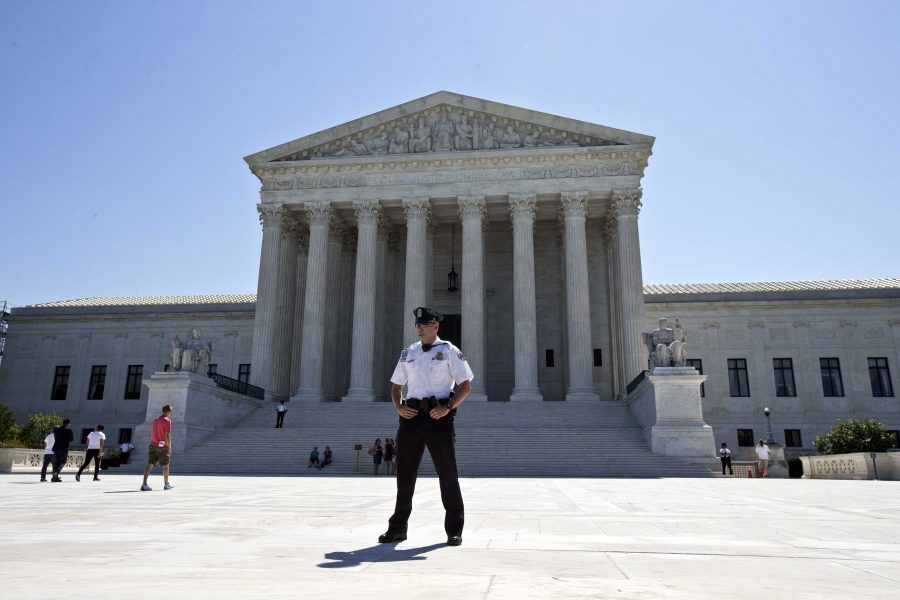By Hanna Grissel
The Supreme Court handed down four monumental rulings this past week worth noting. The majority championed human rights and equality, while one simultaneously diminished a civil protection under the Constitution.
Most expectedly, Abby Fisher was told she couldn’t blame people of color for her academic averageness. Kim Davis and her contemporaries took a blow to their cause and won’t be able to deny any queers the right to marry without being arrested. On top of that, women across the nation were reassured that it’s unconstitutional for a state government to limit access to essential medical care.
Relishing in these victories for human rights and equality is imperative, as it reminds us that we’re progressing, especially when the social climate seems so bleak. Nonetheless, we shouldn’t let these wins tint our glasses rose when acknowledging the ruling in the Utah v. Strieff case. The verdict, on June 20, ruled in favor of Utah (5-3), and made thinner the distinction for what is considered protected under the exclusionary rule, which prohibits the use of illegally obtained evidence in a court of law (law.cornell.edu).
The question presented before the court was “Should evidence seized incident to a lawful arrest on an outstanding warrant be suppressed because the warrant was discovered during an investigatory stop later found to be unlawful?” (supremecourt.gov). The evidence seized by the officer was methamphetamine, so it turned out the officer’s criminal-sniffing senses were correct. Regardless, when sniffing out the criminal, the officer made himself a criminal. The proponents of this decision concluded that unlawful stops like the one undergone by the arresting officer in the case are now legal. That, though the officer defied the constitutional rights of a citizen, because the officer’s instincts were correct this action should now be considered acceptable conduct, not misconduct, under the law.
Essentially, the Supreme Court’s decision has altered a portion of the legal interpretation of our Fourth Amendment right. The portion that states, “The right of the people to be secure in their persons … against unreasonable searches and seizures, shall not be violated, and no warrants shall issue, but upon probable cause.” (law.cornell.edu). The alteration to probable cause, is in all actuality, a complete bypass of due process, unless you believe that an officer’s instinct is probable cause enough. And as long as they find a warrant, such as one for an old traffic ticket. Or say, the officer asks to search you, without informing you that you can deny the request, then finds something incriminating. From that point on the officer’s unwarranted violation of your person is legalized (thepolitic.org)
One might wonder what a warrant is for if someone’s instincts can replace it. While the argument for police instincts seems sound for someone unaffected by police activity, it doesn’t hold its ground when referencing the current state of disproportionate policing of marginalized groups. Supporters argue that by spotting the suspicious (say, people similar to Edward Strieff), authorities can aid in weakening our country’s criminal culture. The fact of the matter is, this decision has only made a copiously exercised, illegal policing tool, legal. Such a practice that was, and is, a cornerstone of institutionalized profiling is alive and well in police departments nationwide.
What this ruling says to the people was answered best in the written dissent by Justice Sonia Sotomayor. She stated, “This case tells everyone, white and black, guilty and innocent, that an officer can verify your legal status at any time. It says that your body is subject to invasion while courts excuse the violation of your rights. It implies that you are not a citizen of a democracy but the subject of a carceral state, just waiting to be catalogued.” (supremecourt.gov/opinions).



